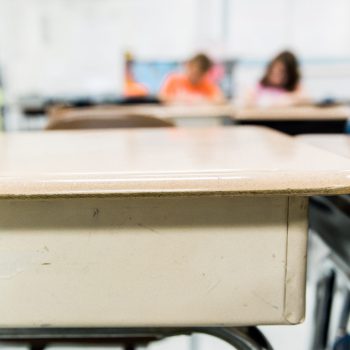What is RTI²?
Response to instruction and intervention is the way CMCSS intervenes with students who are struggling academically by focusing on quality core instruction and intervention of specific skill deficits. The purpose of RTI² is to intervene with students quickly in the area of need so skill deficit gaps do not develop as they progress through school.
What does the RTI² Framework look like?
The RTI² Framework has three tiers; each tier provides intensifying levels of support.
- In Tier l, all students receive evidence-based, high-quality, general education standards-based instruction that incorporates ongoing universal screening and assessments to inform instruction. Tier I is another name for the regular core instruction all students get every year.
- In Tier ll, students identified as having significant skill deficits receive intervention targeted to the specific area of need. Student progress is consistently monitored during intervention and decisions about tier movement are based on progress monitoring data.
- In Tier III, more intensive interventions are provided to students who have not made significant progress in Tier II, or who demonstrate a deficit significant enough to warrant immediate Tier III intervention. Students are monitored closely to determine if the intervention is effective. Movement from Tier III is dependent upon intervention success.
Tier II and III intervention occur in addition to regular classroom instruction. Schools will communicate with parents in writing when students go into and out of intervention, as well as update progress during intervention.
What are the key components of RTI²?
RTI² has been around for many years and is proven to improve instruction for all students by identifying areas for improvement in core instruction.
Schools assess all students in the fall, winter, and spring using what is called a Universal Screener. This is a skills-based measure students are given to quickly check how they perform compared to grade-level expectations. Screeners are brief and measure math and reading proficiency, as well as social-emotional protective factors. School teams consider data from a variety of sources, including the screener, to determine the level of intervention most appropriate and the specific skill deficit.
Another key component of RTI² is progress monitoring. Progress monitoring is a way for teachers to take a snapshot of how children are doing on a specific skill. It includes formal and informal assessments. Progress monitoring helps determine whether an intervention is successful or needs to be changed. Data from this type of monitoring is shared with parents on a regular basis (every 4-5 weeks).
When progress monitoring indicates a student is not responding to the intervention at an acceptable rate (gap closure is not occurring at a reasonable rate), another approach or intervention may be implemented. If a higher level of support is needed, students may be provided more intensive intervention that further focuses on the supporting skills they need to be successful learners (Tier lll). Students who do not respond to Tier III interventions may be referred for a special education evaluation.
What if I think my child needs special education?
If at any time parents/guardians become concerned that their child needs special education services, they should contact their child’s teacher or administrator. Other forms of evaluation, in addition to information gathered through the RTI² framework, are needed to determine if a student is eligible for special education services. A parent’s written consent is required for these evaluations to be conducted.
Additional information about RTI² implementation will be provided by each school.
A SPECIAL NOTE REGARDING SCREENING AND CONTINUED INTERVENTION
If your student was recommended to continue participation in tiered intervention in the spring, that intervention will be continued this fall. The district will begin administering fall universal screening measures to gauge student progress and make instructional plans to meet the needs of all students as soon as students return to school. Data from the fall universal screening will be used in conjunction with previous screening, progress monitoring, and curriculum-based data to determine the need for continued intervention, tier level, and pinpoint specific deficits. After universal screening measures are administered, parents/guardians will be provided information if the continued or initial placement of their student(s) in tiered intervention is recommended. All data will be treated as continuous (i.e., the summer break does not necessitate a ‘restart’ on data collection and/or delay progression toward referral) and data teams will meet frequently and consistently to review student progress and make informed decisions.
TENNESSEE LITERACY SUCCESS ACT AND THE CMCSS FOUNDATIONAL LITERACY SKILLS PLAN
In compliance with the Tennessee Literacy Success Act, each district and public charter school must submit a Foundational Literacy Skills Plan. School districts and public charter schools must create a local Foundational Literacy Skills Plan for students in kindergarten through fifth grade and submit the final approved plan to the department for approval. The Clarksville-Montgomery County School System’s Foundational Literacy Skills Plan has been approved by the Tennessee Department of Education and may be found here.
We wish you and your student(s) a healthy, productive school year! Should you have any questions, please contact your school’s RTI2 lead or the district RTI2 data team at [email protected].




